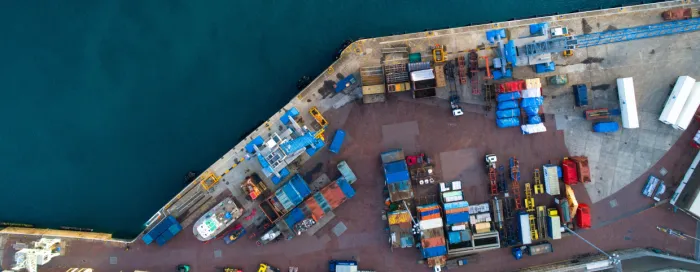The maritime industry is rapidly changing. Whereas traditional activities such as transport, fishing and shipbuilding still employ over 5 million people in Europe, the fastest growth is in areas that did not exist a few years ago, such as renewable marine energy and biotechnology. These sectors create new jobs, boost local economies and drive the transition to high-value added activities.
The maritime industry can thus become one of the key levers in achieving the Sustainable Development Goals, whether it is by combatting climate change through maritime transport, developing marine renewable wind energy or sustainable fishing techniques, or by creating high-quality jobs.
“We want to see the blue economy at the heart of the priorities of the next European Commission. Many sustainable jobs can be created in the maritime industries if European policies combine maritime ambition, industrial policy and commitment to the ecological transition”, stressed PES Group member Christophe Clergeau, Member of the Pays-de-la-Loire Regional Council (France) and European Committee of the Regions' rapporteur on Maritime industries. “At the same time, in order to succeed, it is necessary to closely involve Europe's major maritime regions (which have developed regional excellence and ecosystems innovations devoted to these industries) in this process”, he emphasized.
"Les industries maritimes doivent concourir à la transition énergétique, avec notamment la filière des énergies renouvelables, mais aussi créer des emplois durables et de qualité."@clergeau #corplenary pic.twitter.com/CDEoGBSdxV
— PES Group Committee of the Regions (@PES_CoR) June 27, 2019
His call for a new industrial policy roadmap for the maritime industries includes a series of key requests, taking into account economic, social and environmental factors, such as:
- launching a mechanism (“European Sea Tech”) aimed at mobilising regions to build European networks around the value chains and the new challenges of the maritime industries;
- supporting coastal communities (in particular those of the islands and of the outermost regions) and investing in the development of their traditional activities such as fisheries and aquaculture;
- reviewing EU trade and competition policies to protect European workers from unfair competition, and promoting European excellence;
- providing workers with marine-specific training;
- providing dedicated long-term investment funding for new risky and innovative projects in sustainable maritime industries;
- supporting ports as blue Economy platforms and encouraging the transition of ports to clean energy and the de-carbonisation of maritime transport.
Photo credit: Unsplash / Enrapture Captivating Media
